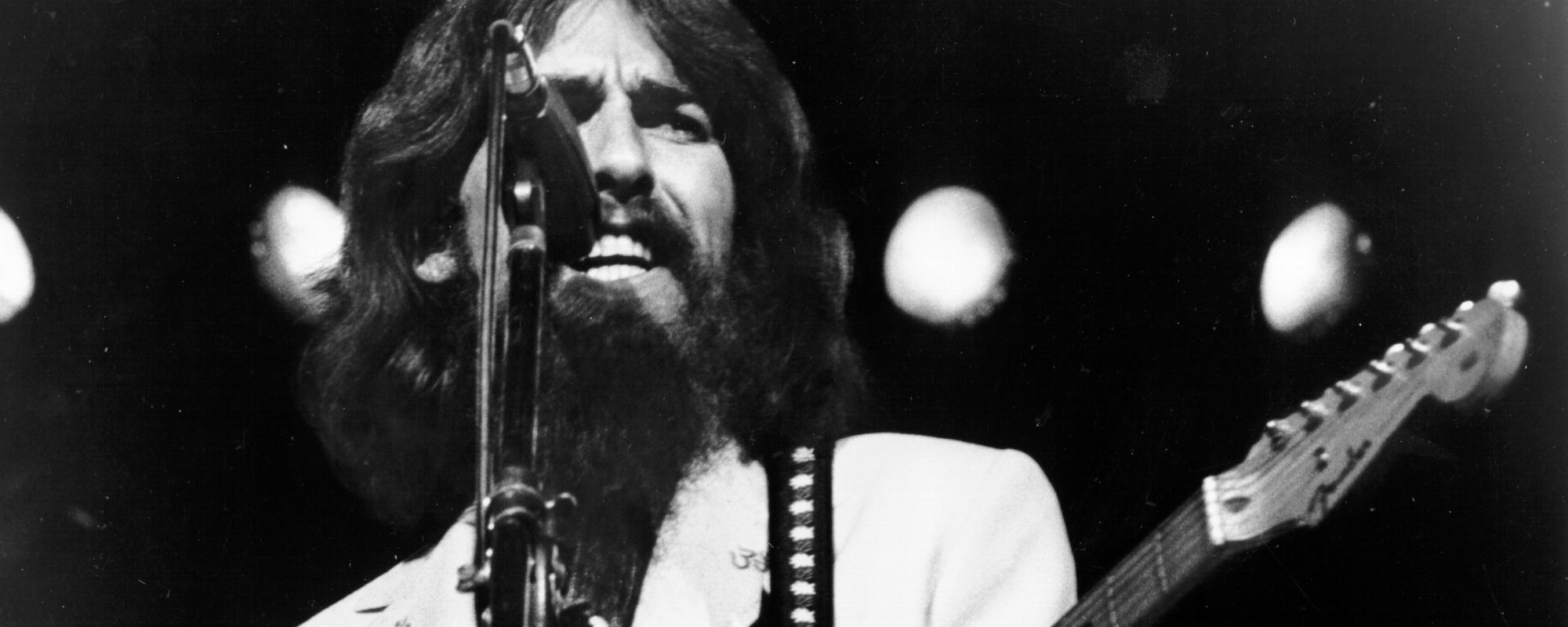All Things Must Pass looms so large in the George Harrison catalog that it can sometimes overwhelm everything else released in its wake. That includes its followup, Living in the Material World, a big hit at the time of its release but somewhat overlooked since.
Videos by American Songwriter
A new reissue aims to take care of that and give folks a reason to dive back into this record, released in 1973. What they’ll find is Harrison rising to the occasion, despite distractions and issues surrounding him as he recorded it.
Material Comforts
When it came to the unofficial battle for solo credibility among ex-Beatles, George Harrison was sitting pretty circa 1973. He had enjoyed the massive one-two success of All Things Must Pass and The Concert for Bangladesh, and demand was high for his next record so he could assume the mantle of rock supremacy.
But Harrison was ambivalent about diving headlong into all that went along with that. It didn’t help that his personal life was under severe duress at the time. His marriage to Pattie Boyd was in major stress. The lawsuit about his massive hit song “My Sweet Lord” was also weighing on him, not to mention the endless legal scrambling when it came to The Beatles’ aftermath.
Still, Harrison managed to pull focus when it came time to make Living in the Material World, even if he didn’t work nearly as hard promoting it. He didn’t rely on songs he had left over from his Beatles days, as he did on All Things Must Pass. Instead, he wrote almost the entire album fresh.
Harrison also assumed most of the production duties, as his former collaborator Phil Spector wasn’t in the best condition to help him out. The cast-of-thousands approach from his previous album was absent, as he narrowed his backing band to a steady core of session aces.
Both lead single “Give Me Love (Give Me Peace on Earth)” and the album itself soared to No. 1 in the U.S. and hit the Top 10 in the UK. For such a hit, Living in the Material World is slept on somewhat by critics and fans. The two-disc reissue promises to alleviate that.
Revisiting the Music of Living in the Material World
The extra music on the reissue is mostly contained to various takes of the songs that made it to the album. “Miss O’Dell,” a country-ish ramble, and “Sunshine Life for Me (Sail Away Raymond),” later recorded by Ringo Starr, are the new non-album cuts found here.
What sells this release is the pristine sonic buff-up of the original album, which captures the extremes of Harrison’s musical personae as well as any of his records. His spiritual questing is certainly well-represented, as evidenced by delicately beautiful tracks like “The Light That Has Lighted the World” and “Be Here Now.”
Harrison also gave some space to uptempo tracks that revealed his earthly grit. The title track finds him dealing with his human limitations, even while his head strives for the clouds. “Sue Me, Sue You Blues” gives him a vehicle for his gallows humor, as he vents over his time spent in courtrooms and lawyers’ offices.
It’s difficult to hear why Living in the Material World has faded somewhat in the public consciousness, at least based on the evidence of this reissue. George Harrison might have been personally stumbling when he made the album, but he was professionally at the top of his game.
Photo by Steve Kagan/Getty Images













Leave a Reply
Only members can comment. Become a member. Already a member? Log in.